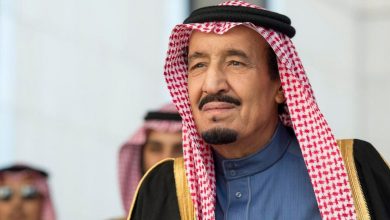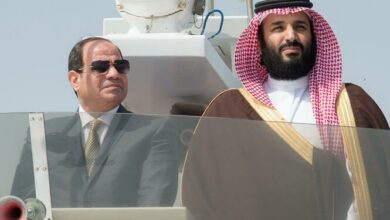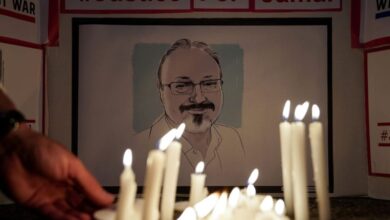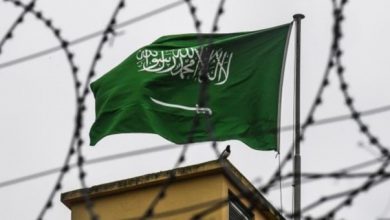Khashoggi murder trial: A parody of justice in MBS’ kingdom of fear
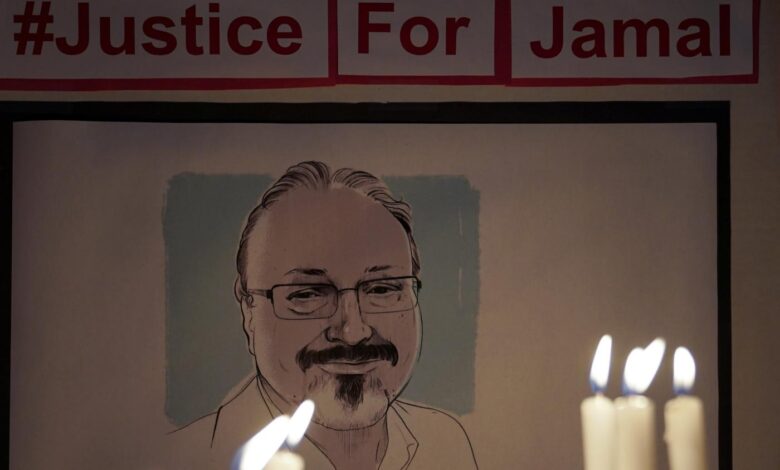
Fifteen men flew to Istanbul to murder Jamal Khashoggi in the Saudi consulate on 2 October 2018.
On 23 December 2019, eight of that death squad were convicted of the journalist’s killing. Five were sentenced to death and three others to a total of 24 years in jail.
It was pure theatre.
On Monday, a Saudi court commuted the death sentences of the five to 20 years with the other three being given sentences of between seven and 10 years. And so ended a slow and grotesque parody of justice, an authoritarian set piece worthy of Stalin and of his secret police chief Lavrenti Beria.
How could it be that seven members of that death squad have walked free? How could it be that the crown prince’s former aide Saud al-Qahtani and the former deputy intelligence chief Ahmed al Asiri, the architects of a murder most vile, acting at the behest of the Crown Prince Mohammed bin Salman, emerge unscathed? That Mohammed bin Salman himself is treated by world leaders as if his role in the murder matters for nought? How can it be that a brave and thoughtful voice like Khashoggi’s can be so brutally silenced?
Khashoggi was lured into the Saudi consulate in Istanbul. The true horror of what happened there can be found in the report of the UN’s special rapporteur Agnes Callamard that was released last year.
She notes that recordings held by the Turkish authorities undercut claims by the Saudis that the murder was unintended or not pre-meditated. Two of the killers discuss before Jamal arrived what they would do once he was killed: “The body is heavy. First time I cut on the ground. If we take plastic bags and cut it into pieces, it will be finished.” And then the other asks if “the sacrificial animal” has arrived.
Bluffer-in-chief
Emboldened by the White House – US President Donald Trump famously teased the media when asked about the crown prince’s involvement: “It could very well be that (he) had knowledge of this tragic event; maybe he did and maybe he didn’t!” – MBS has been able to smirk and bluff his way in public.
In an interview in September 2019 the Saudi crown prince said: “It happened under my watch. I get all the responsibility, because it happened under my watch.” That “I get all the responsibility” sounds more like a whine or a complaint than any sort of acceptance.
And when pressed about how it was possible he could not have known of the operation, he replied with insouciance: “We have twenty million people. We have three million government employees.”
And on the use of a plane owned by the Public Investment Fund (which he controls) to fly the death squad in and out of Istanbul he said: “I have officials, ministers to follow things, and they’re responsible. They have the authority to do that.”
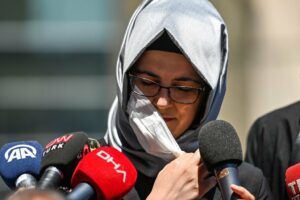
So really, he is saying, I am not responsible. And if I am, there is nothing that can be done about it.
Jamal Khashoggi’s fiancée Hatice Cengiz, who waited those agonising, nightmarish hours outside the consulate for him to return, is right when she tweeted about the latest verdict that it was “a complete mockery of justice”. It is a mockery because our government and the Americans along with the rest of the liberal democratic world’s governments allow it to be.
MBS’ web of paranoia
Just as we allow the ongoing persecution of the Saudi activist Loujain Al Hathloul, tortured in prison and routinely and capriciously denied access to her family. Or the similar ill-treatment of Sheikh Salman al-Ouda, whose family have heard nothing from him since May, as well as that of the blogger Raif Badawi and his sister Samar.
And so many others who have had the temerity to call for human rights, for free speech and the right to question authority.
Even senior members of the ruling family have been caught in Mohammed bin Salman’s web of paranoia.
The former crown prince and Interior Minister Mohammed bin Nayef, his brother, Prince Nawaf, and King’s Salman’s younger brother Ahmed bin Abdulaziz were seized in March. Mohammed bin Nayef’s lawyers do not know his whereabouts.
As Mohammed bin Salman rules his kingdom of fear, the shadows of his victims follow him. Their families and princes in the House of Saud and religious leaders and the tribes – all those whose loved ones have been abused by the Saudi crown prince – watch him silently. And they wait.
This opinion was originally published on the Middle East Eye

